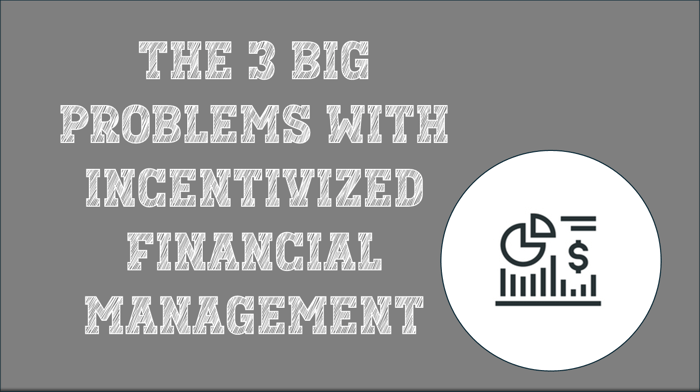LOOKING FOR HELP WITH RETIREMENT?
Financial Advisers
Planning for retirement is no easy task. You need to be able to predict future costs and expenses, plan around possible emergencies, and possess a certain level of financial skill just to get started. The whole ordeal can be incredibly stressful. That’s why many people hire financial advisers to assist them with their retirement plan.
However, hiring a financial adviser comes with its own set of problems. For people without a strong financial background, it can be difficult to understand how certain advisers are different from others. Thankfully, we’re here to give you a quick crash course on what you need to know when hiring a financial advisor.
Designation Encyclopedia
If you’ve been shopping for financial advisers, you’ve probably noticed designations for financial advisers are a bit more complicated than they are for other professionals like doctors.
For instance, you might be familiar with the designation CFP, which stands for Certified Financial Planner. However, other designations like CFS, CIMA, and CIC, may seem entirely unfamiliar. These designations are important to understand if you’re planning on hiring a financial planner since they’re critical in determining which adviser is right for you.
- Certified Financial Planner (CFP) – Perhaps the best-known designation among financial planners is the CFP. Those who possess this prestigious designation are certifiably competent in all areas of financial planning. This credential certifies that an individual has gone through rigorous testing and will adhere to the CFP Board’s code of ethics. Potential clients of any CFP can check online to verify a CFP’s standing at any time.
- Certified Fund Specialist (CFS) – It’s probably no surprise that this designation refers to individuals who have demonstrated their capability in handling mutual funds. Individuals with this license are authorized to buy and sell funds on behalf of their clients.
- Certified Investment Management Specialist (CIMA) – This designation is specific to investment consultants and requires a certain level of skill in risk measurement, asset allocation, and performance measurement. Individuals with this designation are required to undergo recertification every two years.
- Chartered Financial Analyst (CFA) – Considered one of the most difficult designations to acquire in the investment management industry, the requirement for this designation are second only to those of for CPAs. Those possessing this credential have gone through at least three years of coursework and have demonstrated their capability in the areas of portfolio theory, fundamental analysis, and financial accounting.
Knowing your financial designations is the same as knowing your financial adviser’s capabilities. However, credentials aren’t the only thing you need to look out for when choosing an adviser.
Below is a list of the top 5 questions to ask your financial adviser.
Top 5 Questions
1. Are You A Fiduciary?
Fiduciaries are required to act in the best interest of the client, while other advisors can get away with only recommending certain products. It’s worth mentioning, however, that all advisors possessing CFP accreditation are obligated to meet the standards of a fiduciary due to the CFP Board’s Standards of Professional Conduct.
2. How Are You Compensated?
95% of investment advisers charge their clients about 1% of their portfolio. Not only is this a substantial amount, but it also leaves an adviser open to conflicts of interest. Advisers who are compensated on a percentage basis are motivated to discourage you from making financial decisions that might reduce money in your investment portfolio, no matter how helpful that decision might be for you.
Other advisers are paid by commission according to what products they can sell to you. As you might imagine, these individuals also face conflicts of interest. Such conflicts can be harmful, as studies have shown advisers can subconsciously favor advice that brings them higher commissions.
If possible, I recommend you find an adviser who charges a fixed flat fee. Such advisers face fewer conflicts of interest and therefore are more inclined to offer you sincere advice and act in your best interest.
3. What Services Do You Offer?
Another question you should ask yourself when hiring an adviser is what kind of help you need. Some advisers specialize in financial planning and can help you evaluate your future financial state. Others focus on investment management and are therefore more prepared to assist you in the purchase of securities and other assets. If you’re already knowledgeable about one of these areas, an adviser specializing in the other may be just what you need.
Still, other advisers take a holistic approach to wealth management and integrate both financial planning and investment management to prepare functional plans that support your life goals. These advisers are who you might talk to if you’re looking for a long-term relationship with an adviser who’s dedicated to helping you meet your financial goals.
4. What Can You Do For Me?
Put another way, what can your financial adviser do that you wouldn’t be able to do on your own? Many financial advisors have access to tools that the average person doesn’t possess. For instance, some of them have financial modeling software allowing you to analyze your long-term portfolio risk. Others might have access to special accounts or resources that companies only provide to financial advisers.
5. How Will Our Relationship Work?
A crucial aspect of your relationship with a financial adviser is the relationship itself. How much access to your financial adviser do you need to feel secure? How often do you want to meet with them? These are questions that involve you as much as your adviser and should be addressed before committing to a relationship.
Takeaways
I hope this overview has helped you in determining what to consider when hiring a financial adviser. Your choice in financial adviser may have a long-lasting impact on your future, and it’s important that you know as much as possible before making a decision.







